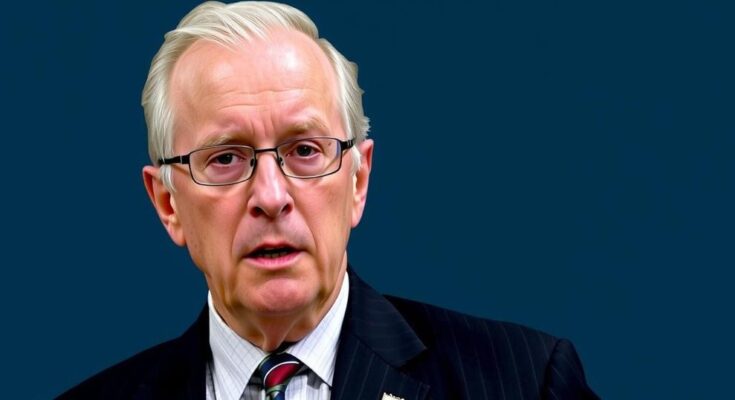Democrats have criticized Trump’s Cabinet choices for lack of qualifications, igniting a political clash. Figures like Pete Hegseth and Kristi Noem have been targeted, with critiques of their fitness for office. However, conservatives point to Biden’s controversial appointments to argue hypocrisy, revealing the ideological warfare that defines today’s political landscape.
Tensions are simmering as Democrats critique President Trump’s recent Cabinet selections for their supposed lack of qualifications, igniting a fierce political debate that echoes through Washington’s hallowed halls. Notably, figures like combat veteran Pete Hegseth and South Dakota Governor Kristi Noem have come under fire, with Democrats questioning their fitness for roles like Secretary of Defense and Secretary of Homeland Security, respectively. Harvard Professor Lawrence Summers expressed dismay over the qualifications of Trump’s nominees, asserting that they pale in comparison to historical Senate rejection cases. Democratic lawmakers, including Senator Elizabeth Warren, firmly rejected Hegseth’s appointment, disregarding his extensive military record in their evaluations. On the other hand, conservative voices have turned the tables, emphasizing the past controversies surrounding Biden’s appointments, including the controversial appointment of Mayor Pete Buttigieg as Secretary of Transportation, highlighting the inconsistent standards set by their opponents. Critics like Bradley Devlin have underscored that Buttigieg’s tenure has been marred by mismanagement during crises, questioning the rationale behind his selection and accusing the current administration of hypocrisy. In an atmosphere charged with accusations of hypocrisy, Republican Senators spotlight Biden officials who similarly possess dubious qualifications. Figures like Jake Sullivan, embroiled in national security controversies, and Sam Brinton, whose arrest for alleged theft created a media frenzy, have sparked debates over the Democrats’ criteria for appointing individuals to high-stakes roles. The term ‘experts’ is tossed around with disdain, suggesting a double standard in the scrutiny of Trump appointees versus their Democratic counterparts. Yet as the narrative unfolds, it appears the lines of attack are drawn closer to home, with both sides accused of failing to meet the high expectations they set for each other, revealing a complex web of partisan intrigue and the ever-present struggle for political dominance. Through this ongoing discourse, it seems that America’s political theater continues to capture eager eyes and ears, as both parties grapple with the balancing act of governance and accountability in a landscape fraught with challenges and expectations. The fervor of such critiques reveals more than just personal qualifications; it encapsulates broader ideological divides and the essence of American democracy.
The controversy surrounding Cabinet nominations has long been a point of contention in U.S. politics, especially during transitions between administrations. In this case, the Democrats have vocally opposed Trump’s nominees, alleging they lack the qualifications necessary for their appointed roles. This criticism, however, has been countered by conservatives who point to similar questions raised about Biden’s appointments, suggesting a hypocritical standard when it comes to scrutinizing qualifications across party lines. This dynamic reveals the ongoing ideological conflict that characterizes modern political discourse, as each side endeavors to undermine the credibility of the other’s selections while defending their own.
The clash over Cabinet qualifications illustrates not only political maneuvering but also the profound ideological differences that fuel American governance. As the Democrats decry Trump’s nominees, conservatives retaliate by highlighting perceived inadequacies in Biden’s appointments, creating a narrative of hypocrisy that underscores the contentious nature of modern political battles. In this polarized environment, the discourse on qualifications appears less about competency and more about the broader struggle for political power and influence.
Original Source: www.foxnews.com



